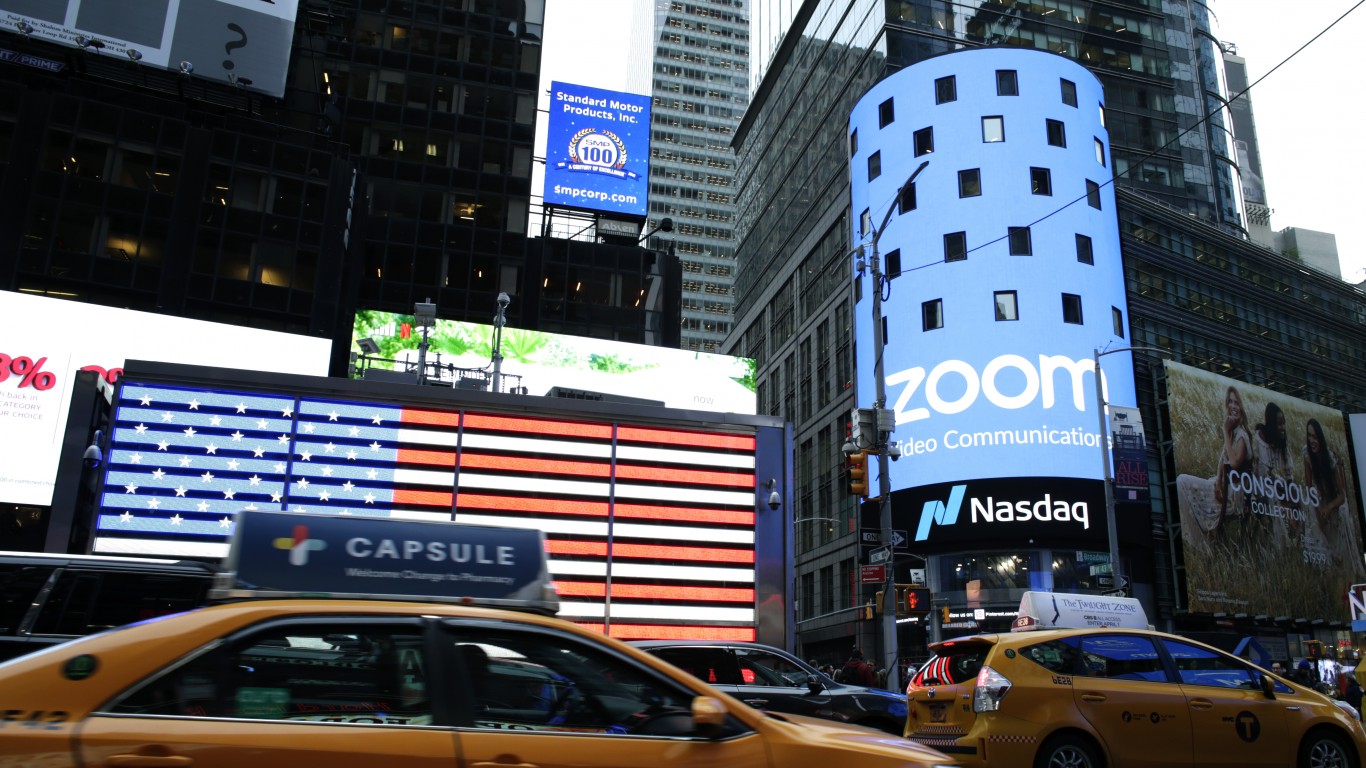

2019 was an extraordinary year for initial public offerings. Several of the world’s largest unicorns (private startups worth over $1 billion) went public, but often with poor results.
WeWork, one of the most valuable unicorns of all time when it reached $47 billion, stumbled ahead of its failed IPO and then almost ran out of money. Famous companies like Uber and Peloton sold off after they went public and continue to trade below their IPO prices. Peloton was one of the latest in the series of letdowns in the 2019 IPO season (See: Was Peloton the Final Straw for the IPO Market?)
Why did so many companies go public this year, even if their share prices proved their IPOs were financial mistakes? The primary engine was the stock market itself. Up over 20% this year, underwriters assumed they were launching companies into a friendly environment. Some companies that went public had such poor financial results that even bullish trading trends could not save them. Another reason was that private investors were impatient to cash in — Uber’s first investors put money into the company in 2011
While the year was dominated by tech IPOs, several other innovative companies also reached public markets. High on this list is Beyond Meat. Its meat substitute products became all the rage both among people who eat meat and those who don’t. Meatless burgers even began to go on sale at fast food chains like Burger King.
24/7 Wall St. consulted lists of public offerings, particularly data kept by IPOScoop. We also reviewed lists provided by several publications that track IPOs. These included Business Insider, CNET, and CNBC. The value of the IPO is the market cap based on the price set by the company and its underwriters for the moment the stock begins to trade.
We considered all companies listed on U.S. exchanges that completed an initial public offering (IPO) through November. As we move toward next year, these are the IPOs to watch for in 2020.
Click here to see the biggest IPOs of the year
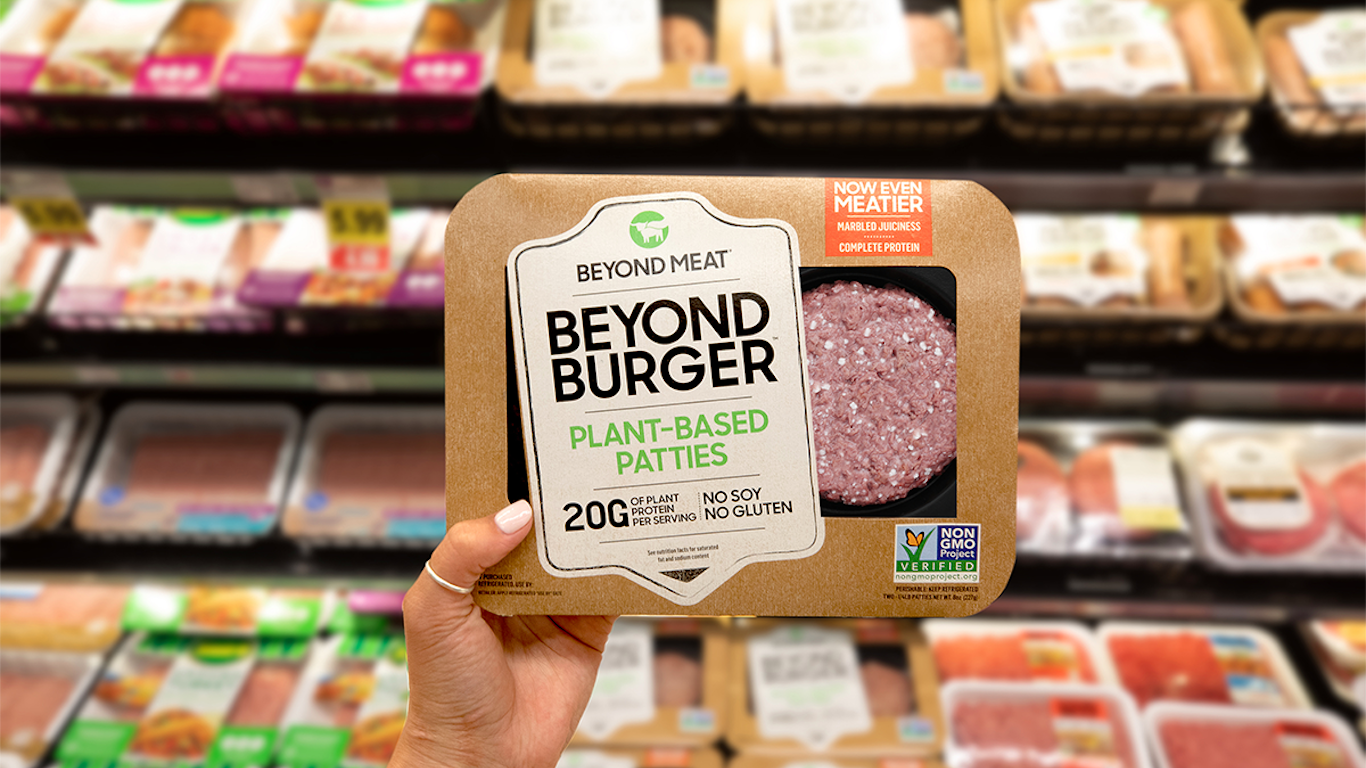
15. Beyond Meat Inc. (BYND)
> Initial public offering: $250 million
Beyond Meat Inc., the meat substitution company, has traded wildly since it went public on May 2. The stock rocketed up by 84% on the first day of trading. The shares are currently priced at around $80 per share but have been as high as $239 and as low as $45. The company makes plant-based beef and pork. There are rumors it will move into poultry.
[in-text-ad]
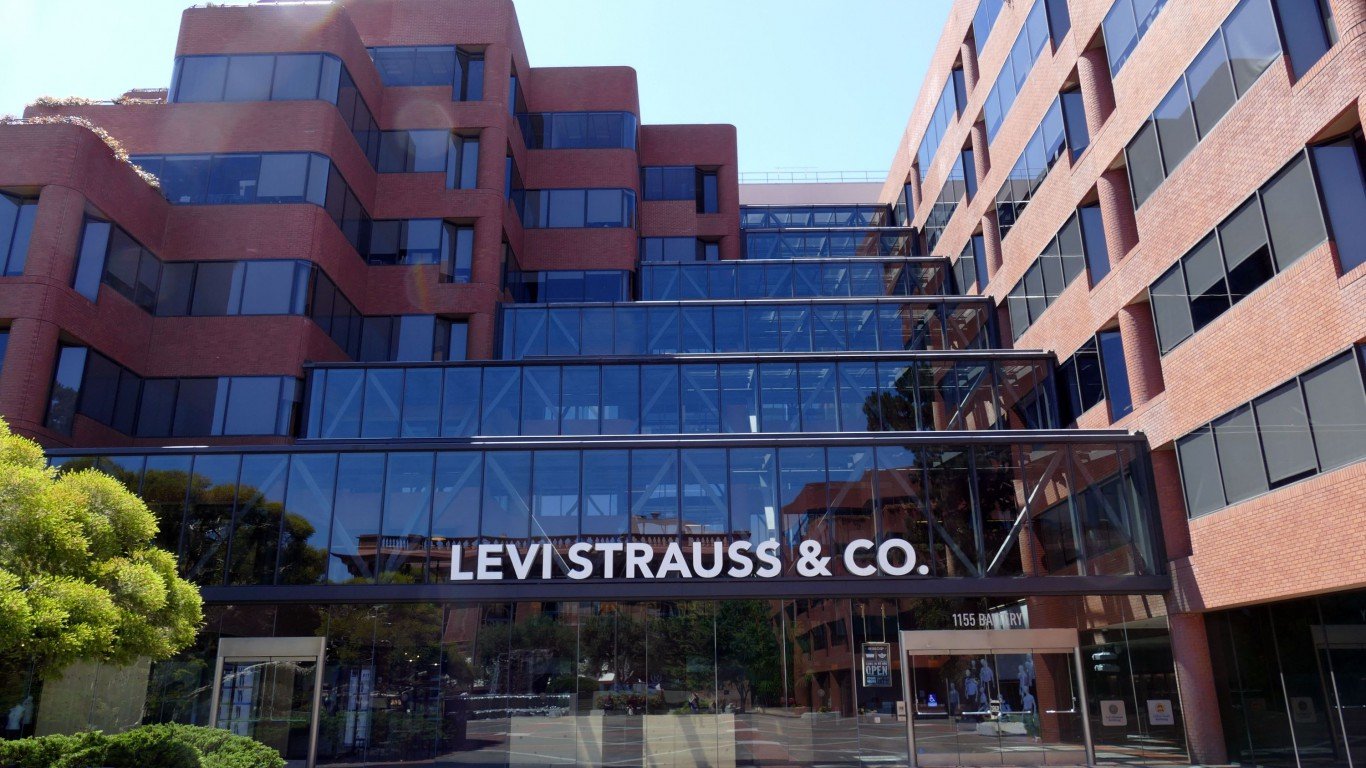
14. Levi Strauss & Co. (LEVI)
> Initial public offering: $623 million
Levi Strauss & Co. was founded in 1853 but went public (again) this year, on March 21. The clothing company traded publicly between 1971 and 1985 before being taken private by the Haas family, who are descendants of the founder. Its most recent earnings disappointed Wall Street.
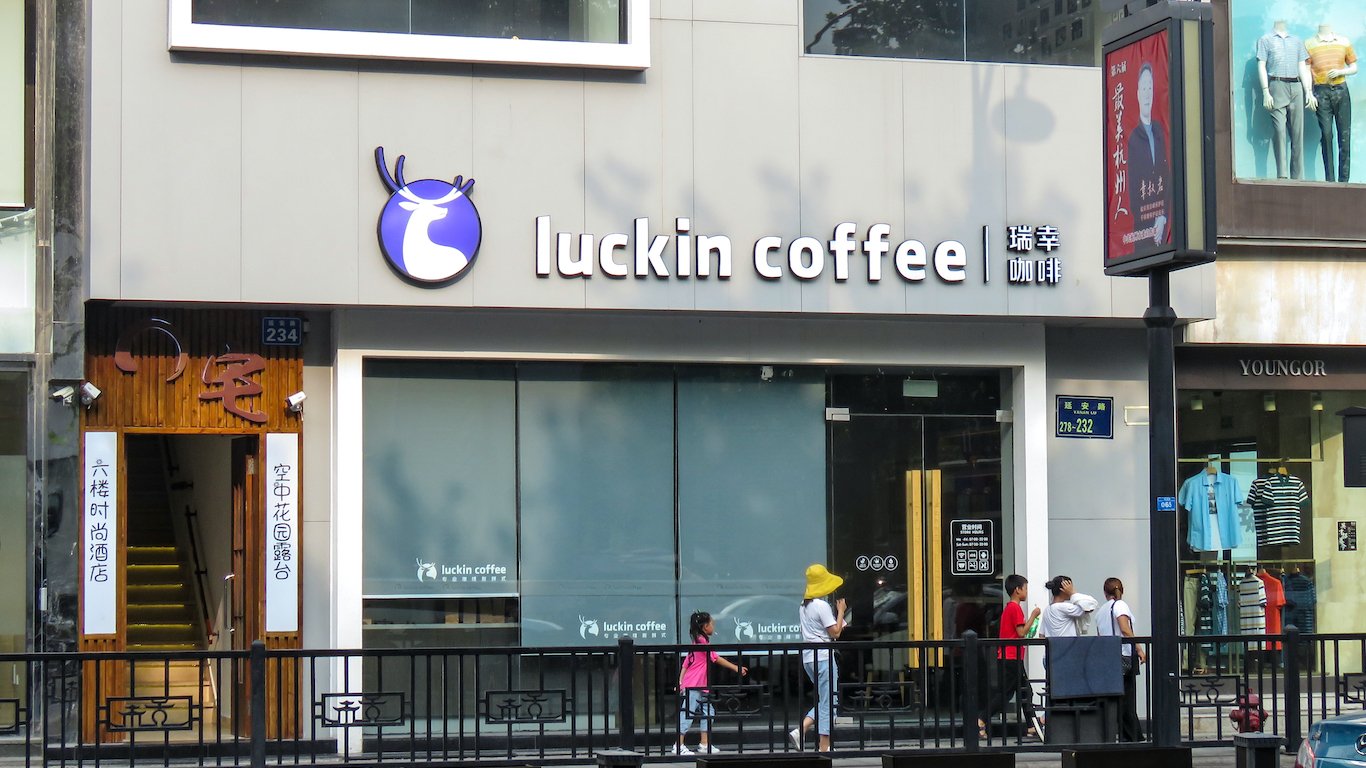
13. Luckin Coffee Inc. (LK)
> Initial public offering: $645 million
Luckin Coffee Inc. is known as the Starbucks of China. Hedge fund buying has helped support its share price. The company has about 2,500 stores, up from around 2,400 at the time of the IPO in the first quarter. The company plans to double that in the next year. The company went public on May 17.
Luckin Coffee is one of the few major IPOs of 2019 that as of the end of December was trading near the top of its price range.
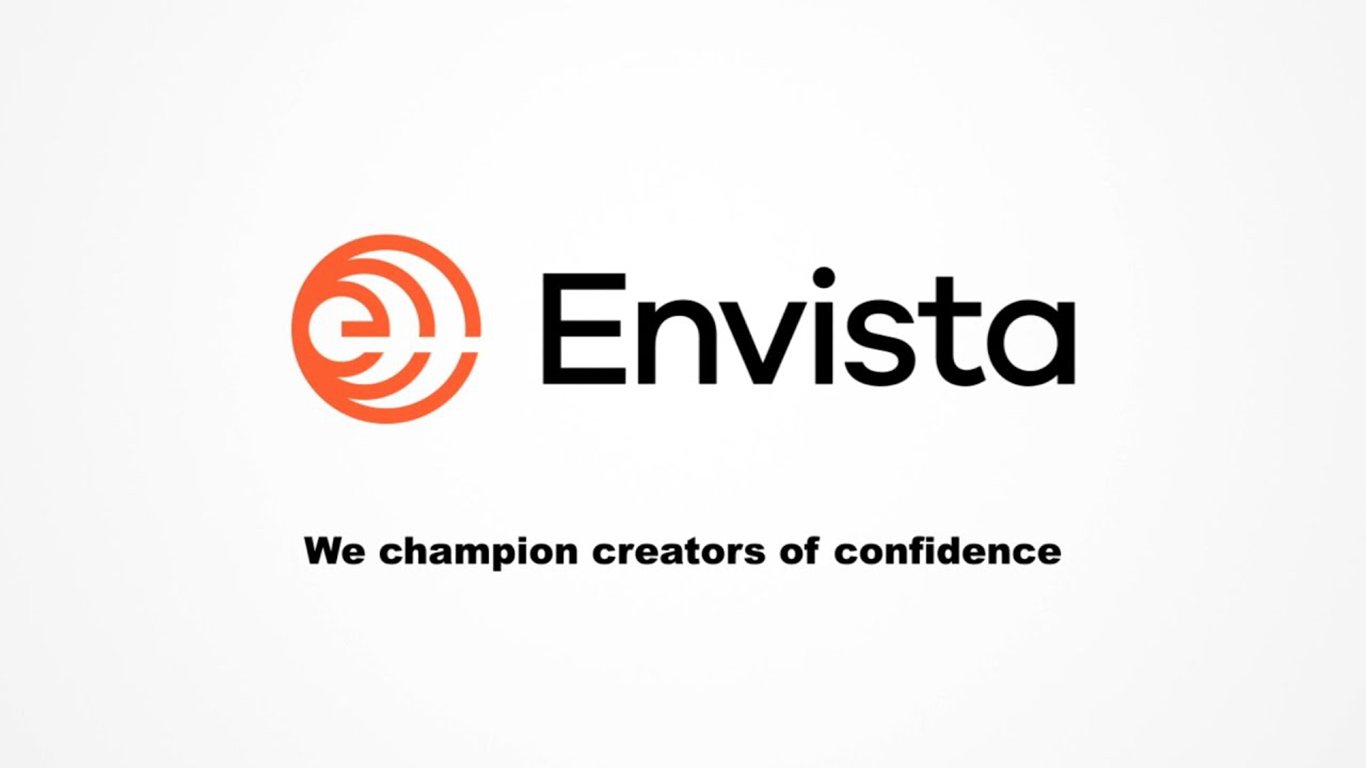
12. Envista Holdings Corp. (NVST)
> Initial public offering: $677.0 million
Envista Holdings Corp., a maker of dental products, was spun out of Danaher Corp in September. Danaher makes a variety of medical products. It agreed earlier this year to pay $21.3 billion to acquire GE’s Biopharma business. Shares were issued at $22 and traded recently at around $28.65 per share.
[in-text-ad-2]
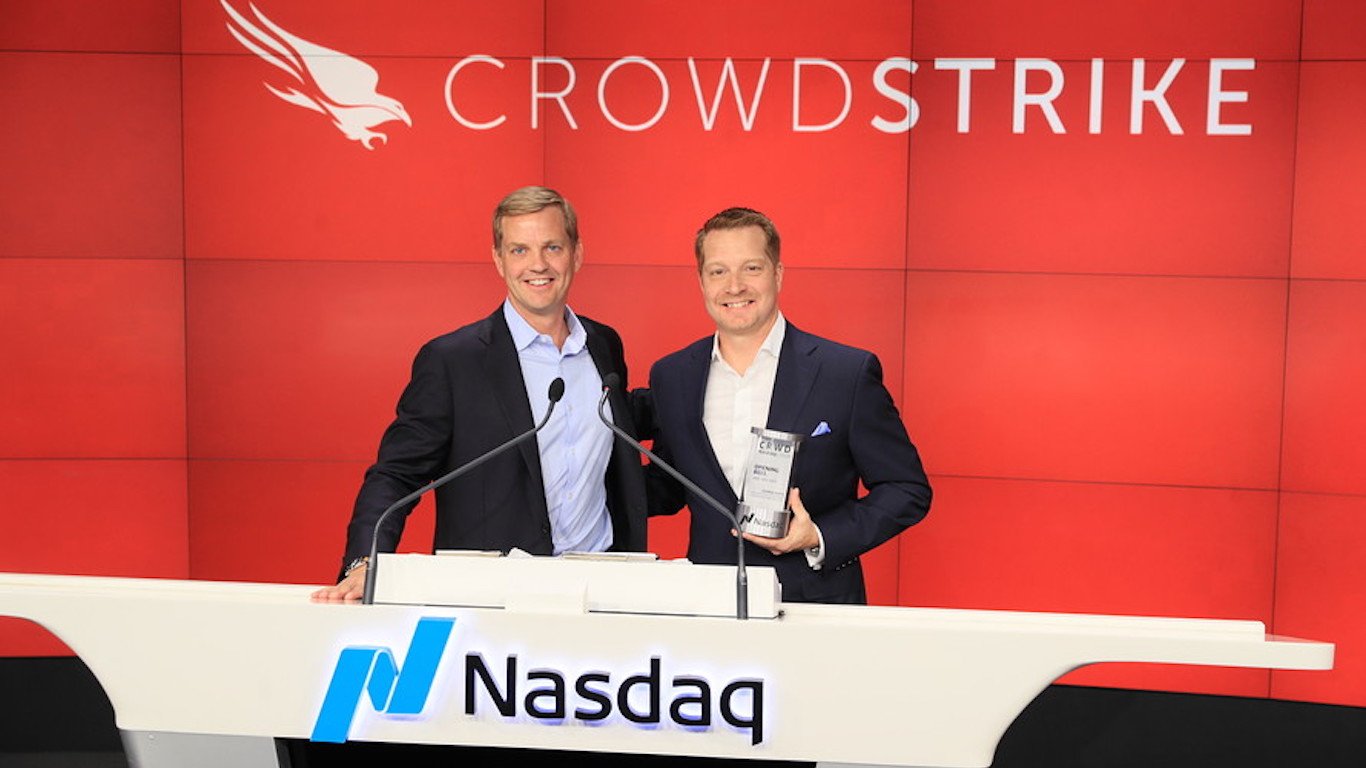
11. CrowdStrike Holdings Inc. (CRWD)
> Initial public offering: $703.8 million
CrowdStrike Holdings Inc. offers cloud-based security services. One of its primary benefits is that it runs on laptops, desktops, servers, and virtual machines. The stock has been buffeted by changing analysts’ calls about the company’s future. The company went public on June 12. It was embarrassed recently when there was a major typographical error in its earnings release that initially lowered shares. When the error was corrected, the stock rebounded.
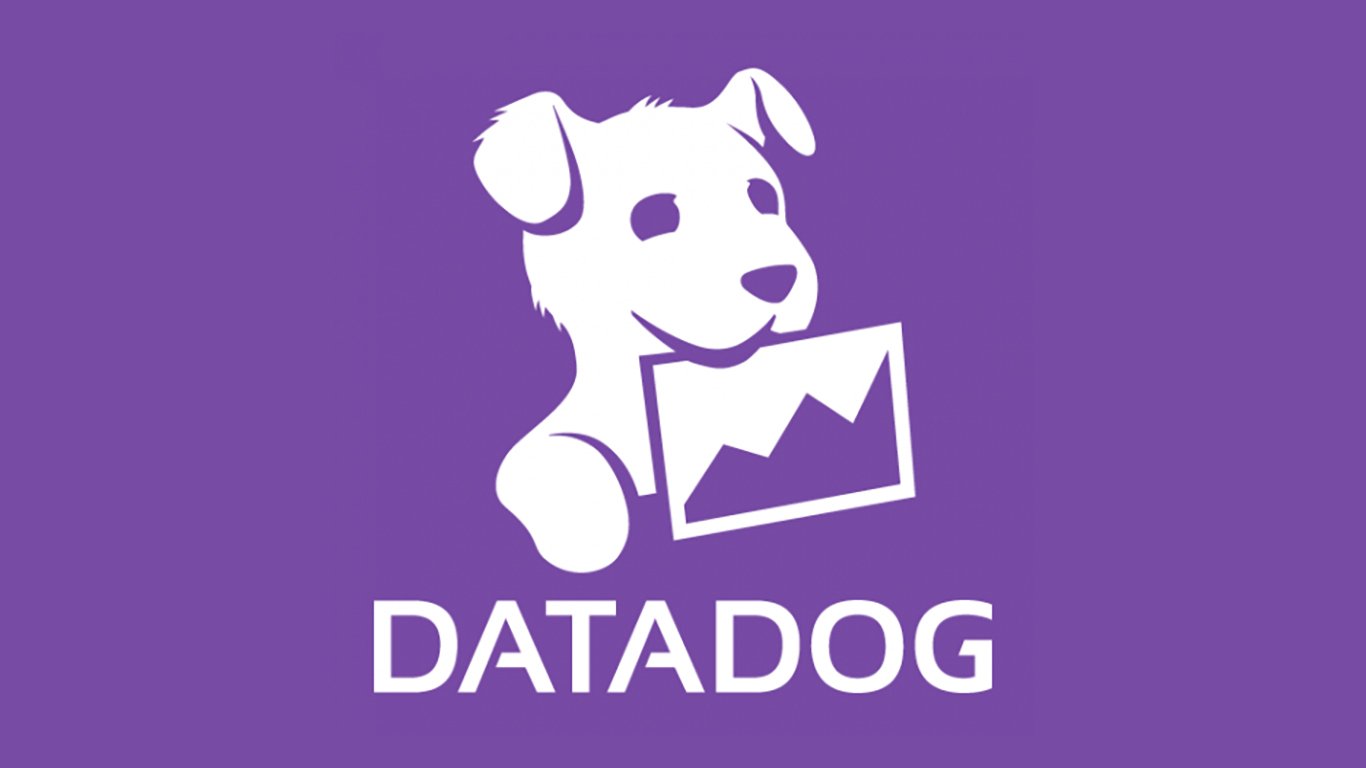
10. Datadog (DDOG)
> Initial public offering: $745.2 million
Datadog went public on Sept. 19 and jumped 39% the first day of trading. The company provides a cloud-based monitoring and analytics platform for developers and IT operations teams. Revenue surged 88% to $96 million in the most recently reported quarter.
[in-text-ad]

9. Zoom Video Communications Inc. (ZM)
> Initial public offering: $840 million
Zoom Video Communications Inc. shares are down 40% off their peak. The company went public on April 18. It operates in the highly competitive video conferencing sector. Its perceived advantage is that it operates on multiple devices, a feature most other products in the market do not offer.
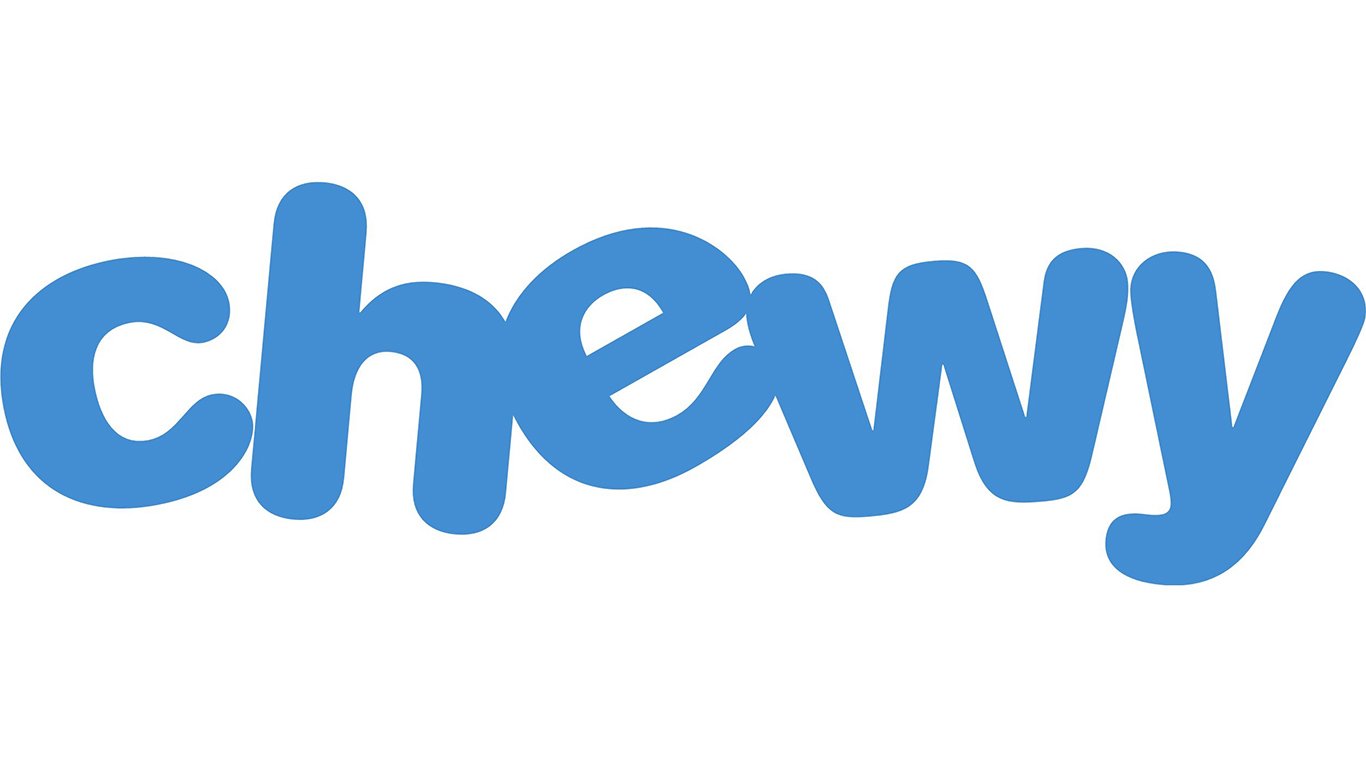
8. Chewy Inc. (CHEWY)
> Initial public offering: $1.18 billion
Chewy allows people to order pet prescriptions online, a mundane but growing business. Like many of this year’s IPOs, the company is not yet profitable. The reception to the offering was good. Chewy went public on June 14 and jumped 59% on the first day of trading. Revenue rose 40% in the most recently reported quarter to $1.23 billion.
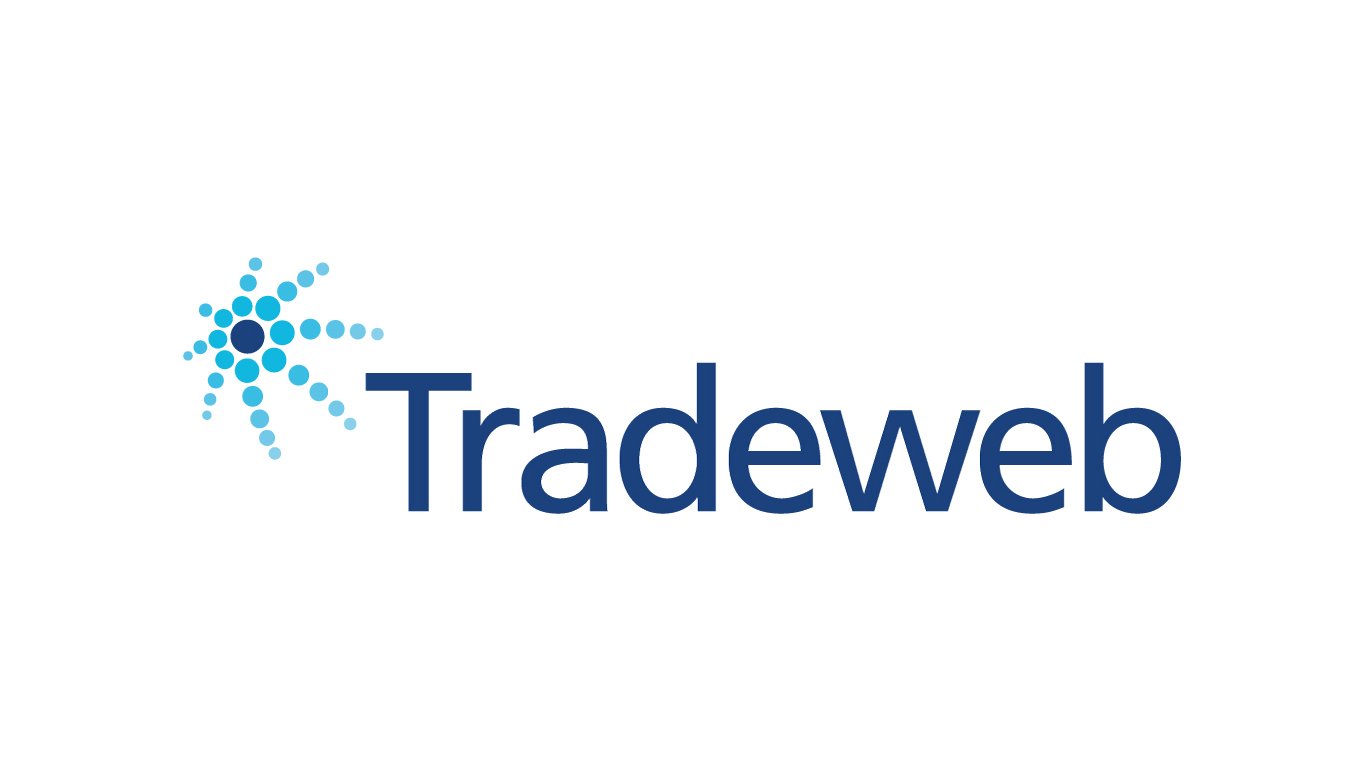
7. Tradeweb Markets Inc. (TW)
> Initial public offering: $1.20 billion
Tradeweb Markets Inc. operates electronic marketplaces for companies that trade fixed income products and derivatives. The company’s shares currently trade about 74% above the April IPO price of $27 a share even after an October secondary offering of more than 17 million shares priced at $42.
[in-text-ad-2]
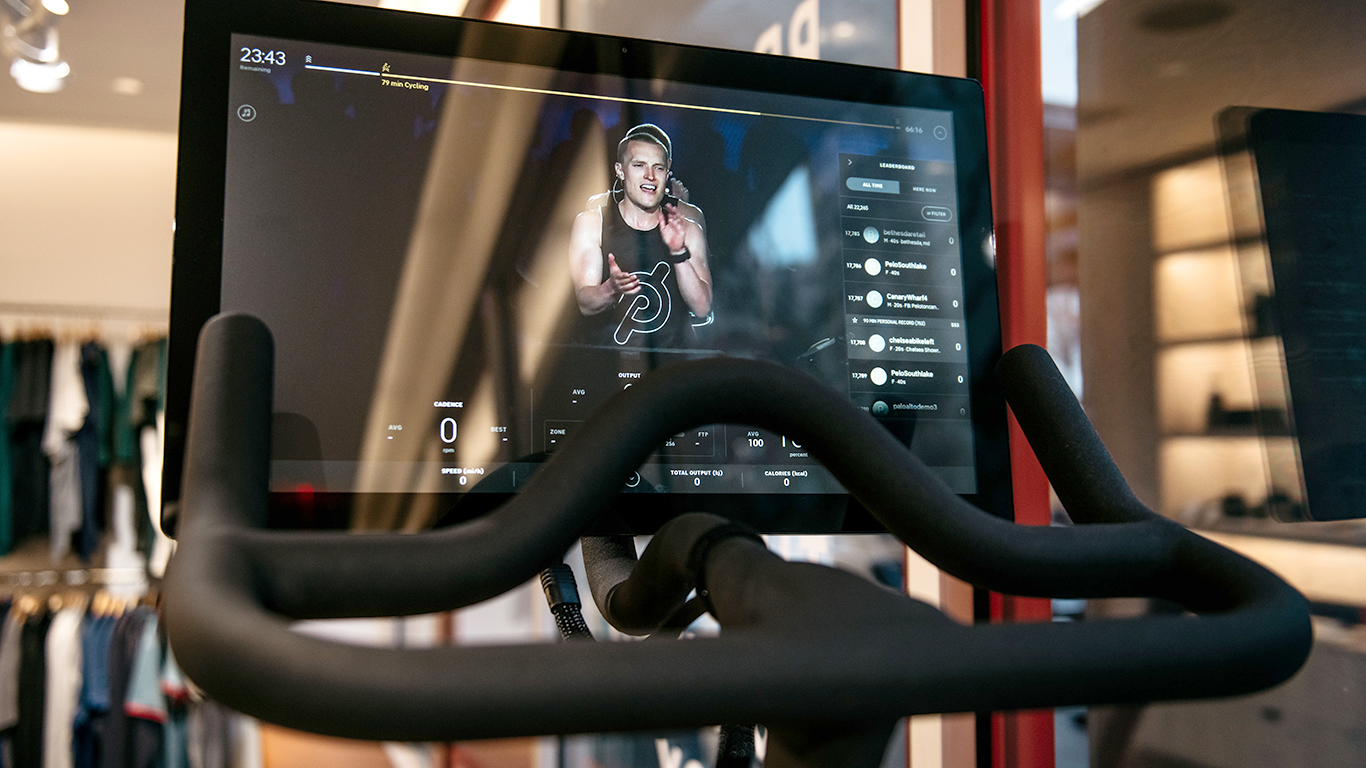
6. Peloton Interactive Inc. (PTON)
> Initial public offering: $1.33 billion
Peloton has recently received a great deal of publicity for what many considered a sexist TV ad. The company went public on Sept. 26 and quickly sold off. Pessimists believe its interactive stationary bike has too much competition. Its new treadmill may increase its customer base.
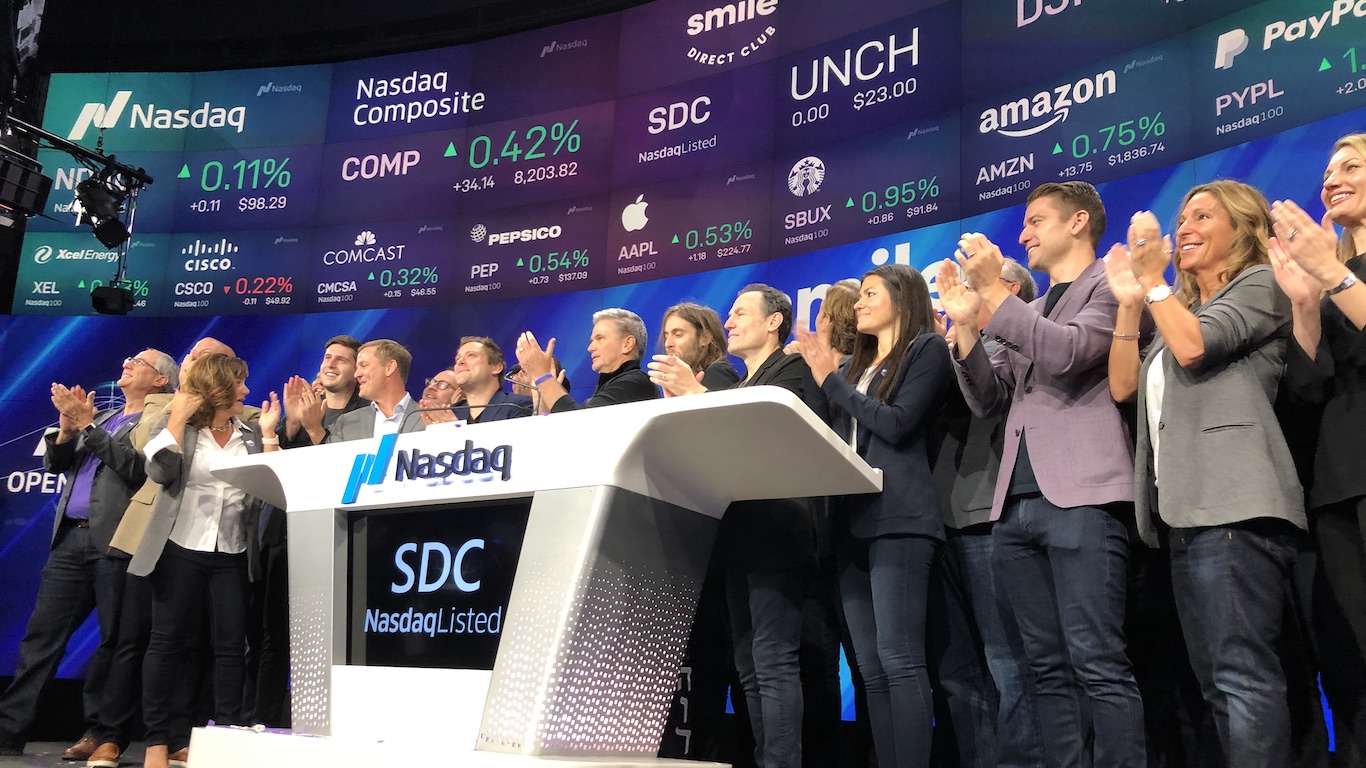
5. SmileDirectClub Inc. (SDC)
> Initial public offering: $1.55 billion
SmileDirectClub went public on Sept. 12. Recently, shares were down 60% from the IPO. The company offers products that allow people to straighten their own teeth (with the help of a dentist), for low prices. Recent earnings were abysmal.
[in-text-ad]
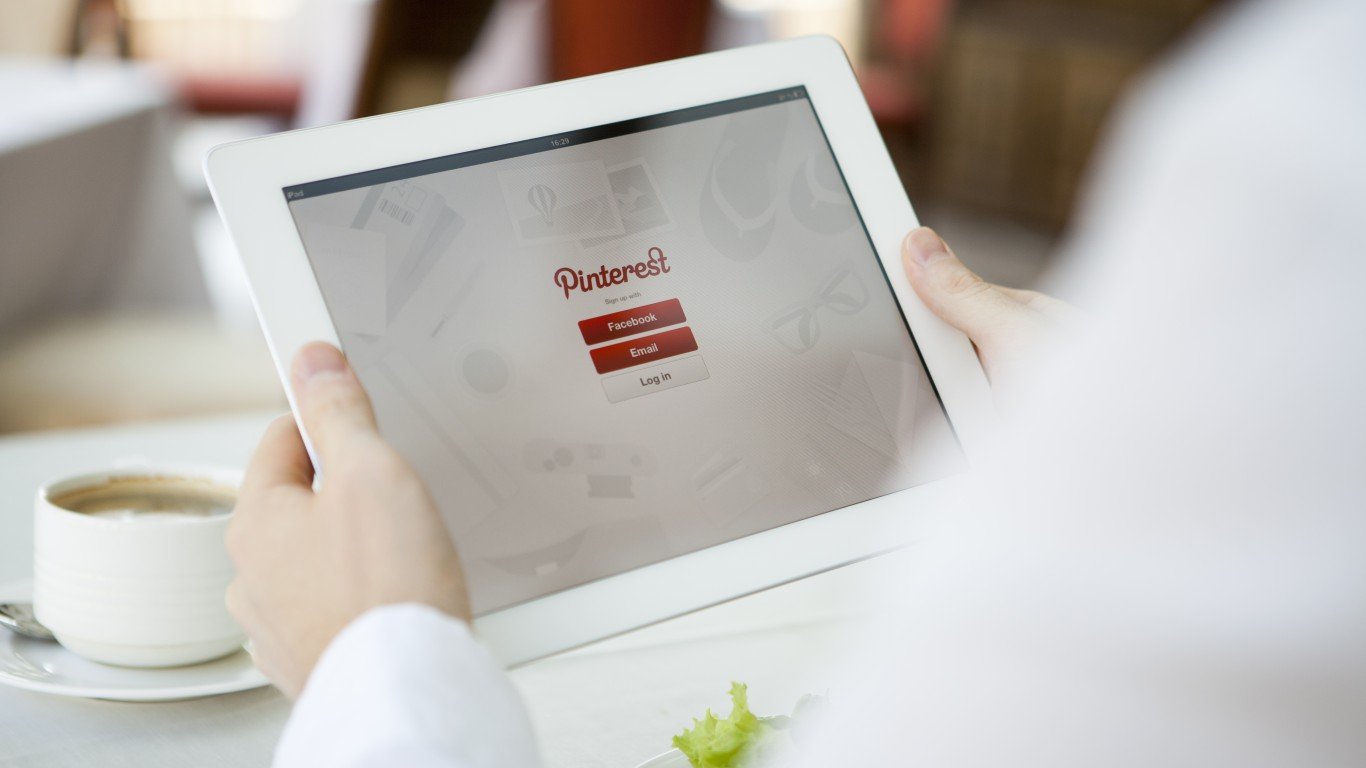
4. Pinterest Inc. (PINS)
> Initial public offering: $1.64 billion
Pinterest is among the larger social media plays in a field that includes public companies like Facebook and Twitter. Recent poor earnings have pushed Pinerest’s shares down to nearly the lowest level since the IPO on April 18.
3. Lyft, Inc. (LYFT)
> Initial public offering: $2.55 billion
Uber’s smaller rival went public on March 29. It faces similar challenges as Uber. Some cities want to regulate the service, including where and when it can operate. There has also been a push to give drivers benefits, which would sharply drive up costs for the companies.

2. Avantor Inc. (AVTR)
> Initial public offering: $3.3 billion
Avantor Inc. makes specialty chemicals for a variety of industries, including biopharmaceuticals and advanced technologies. The company was founded in 1904 and claims all 10 top biotech firms, four of the five top semiconductor makers, and 19 of 20 top research universities in the United States and Europe as among its customers.
[in-text-ad-2]

1. Uber Technologies Inc. (UBER)
> Initial public offering: $9.32 billion
The ride-sharing service went public on May 10, and the stock promptly sold off. It took weeks to get back to its IPO price of $45. Founder and former CEO Travis Kalanick, who was pushed out, has been an aggressive seller of shares recently.
Essential Tips for Investing: Sponsored
A financial advisor can help you understand the advantages and disadvantages of investment properties. Finding a qualified financial advisor doesn’t have to be hard. SmartAsset’s free tool matches you with up to three financial advisors who serve your area, and you can interview your advisor matches at no cost to decide which one is right for you. If you’re ready to find an advisor who can help you achieve your financial goals, get started now.
Investing in real estate can diversify your portfolio. But expanding your horizons may add additional costs. If you’re an investor looking to minimize expenses, consider checking out online brokerages. They often offer low investment fees, helping you maximize your profit.
Thank you for reading! Have some feedback for us?
Contact the 24/7 Wall St. editorial team.
 24/7 Wall St.
24/7 Wall St. 24/7 Wall St.
24/7 Wall St.



